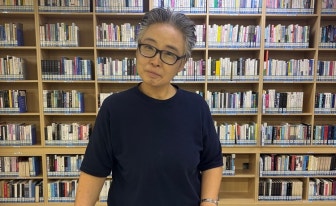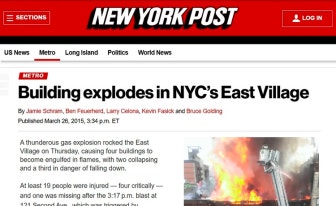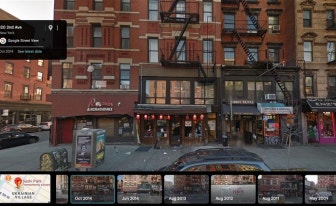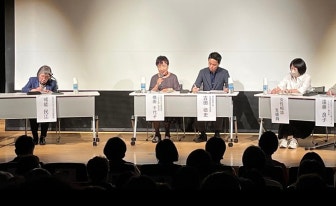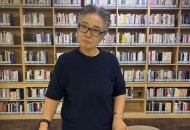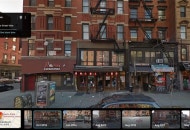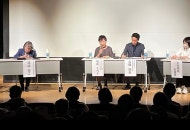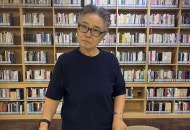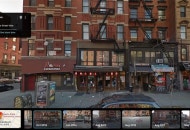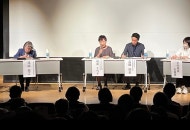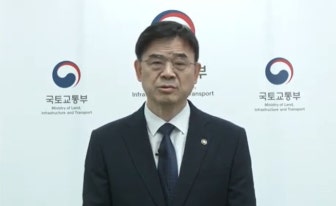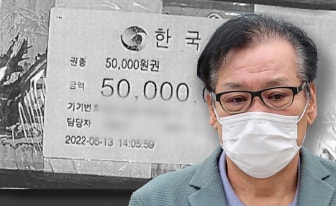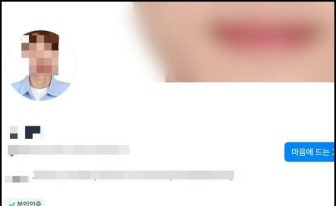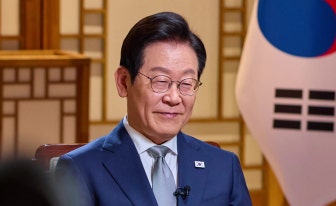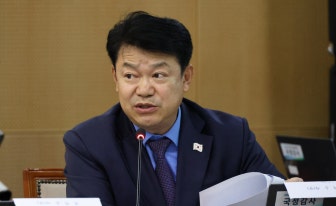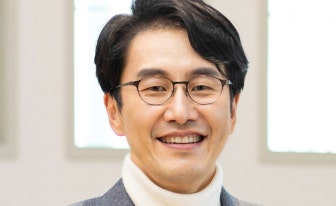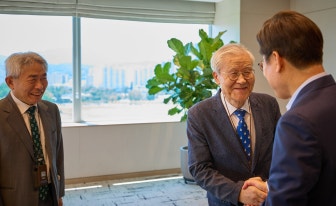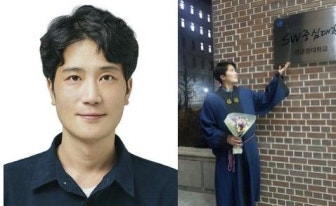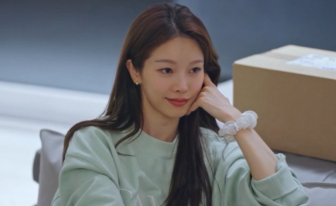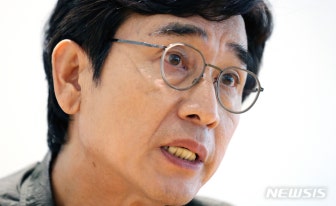I’m 28 years old, currently working as an activist of a women’s organization. Most of my salary, which is a little over 1,000,000 won [910 USD] per month, goes to paying my rent, learning yoga, and taking humanities classes. I don’t save a single cent.
Writing it this way makes me seem like a strong person in her 20s that does and studies what she wants, without worrying about the future. But actually I habitually suffer from anxiety over the future and have ‘planning for the future’ as my hobby and specialty. I made and discarded plans for my future three times during this past month alone. One plan was to work as a civil servant, another was to become someone possessing a certificate for asset accounting, and the other, which I explored all morning today, was to become a veterinarian.
I never imagined that I would still be considering what I wanted to be in the future at this age. And that I would be earning so little.
Not daring enough to live audaciously…anxiety during college
During the first semester of freshman year, a bad choice of friends led me onto a wrong (?) path. When I woke up, I only had “kkolpemi [a somewhat derogatory term roughly translatable as “hard core feminists”]” and activists friends around me. I became more and more cynical towards the world. I was mostly depressed but also quite busy participating in rallies, meetings and activities, since I was, after all, an activist.
Sometime around my senior year, the discourse concerning young people including the 880,000 won generation, or the sampo [giving up three things–dating, marriage, and childbirth] generation, swept through universities. Articles frequently lamented over college students swarming to libraries to enrich their spec [derived from “specifications”; a shorthand term indicating job qualifications including foreign language scores, the school one graduates from, experience of working or studying abroad, etc.]. But the friends around me were people of another kind. Some friends openly claimed to be surplus, doing ing’yeo ing’yeo [literally, “surplus, surplus” or “leftovers, leftovers”; roughly means not being a productive member of the society who, for example, has a job], and some friends dreamt of being activists, following their beliefs. What they had in common was that they didn’t go to the library, didn’t care about their grades, and didn’t study for the TOEIC.
Unlike my friends, I was very anxious over my future. The period I was in college was also when my father took 4 years off after losing his job. Looking at my father who had suddenly lost confidence in himself in his early 50s, and my mother who became more and more hysterical as the phase of my father’s unemployment grew longer and longer, I also became anxious. I felt as if I should have at least one professional skill, so I obtained a certificate for completing courses for teaching social science. When my friends drank until late at night and slept through class, I made myself get up and attend classes, and even though they were a mess, I submitted all of the papers due. I ‘was not daring enough to live audaciously’ would be a better expression than to say I was diligent.
My friends thought I was strange. Even though I wasn’t really living exactly as I should have been according to general standards, I was also the oddball among weirdos.
First day of work, full of gratitude
Time passed by somehow and I was in my final semester as a senior. Most of my grades were B+, as if showing my mediocre college life. Since I had a certificate from completing teaching courses, I considered taking the teacher certification examination, but looking at that overly competitive field, I didn’t dare to.
I wanted to live as a feminist, but I didn’t want to be an activist in women’s organizations. The activists I had seen when I volunteered during college were incredible people. They were physically strong, they had to make well-informed judgments concerning a state of affairs, they wrote well, and they were good at organizing people—they seemed to be good at everything. Back then, I had low self-esteem because of my lack of stamina and my judgment of current situations, which was somewhat off. And I heard that activists’ salaries were ridiculously low. I needed money in order to move out of my home, and with that money, it seemed as if I could never earn enough for key money.
Getting a job at an ordinary office seemed to be the most manageable option. I rushed to prepare to get a job. I got my TOEIC scores, albeit late, and tried to fit myself into the kind of person the company would want. But of course it was impossible to succeed in getting a good office job when I had prepared in haste. I started to regret the past 4 years of my college life. “What have I been doing until now?”
I submitted my resume to companies I had chanced to hear of once or twice before then, to departments that were neither this nor that. Naturally, perhaps, I didn’t get a single job. When I was wallowing in despair, a fellow feminist eonni whom I been acquainted with before contacted me. She told me that her senior from college was working at a venture company that was currently hiring, and asked me whether I wanted to be considered.
I submitted my resume, attended the interview, and went to work for the first time with a genuinely grateful heart. I felt as if things in my life had suddenly cleared up. Now I started to evaluate my college years in a positive light. “Of course, networking is the most important thing! I haven’t wasted my time after all! Hahaha!”
Working at an IT company without being able take my monthly paid leaves or go on vacation
Even when I was signing the contract that stated that I would be working from 9 a.m. to 7 p.m. on weekdays and every other Saturday morning, the only thought that ran through my head was “thank you for giving me a job.” When I went in, the field of IT, particularly at a venture company, was not a place for humans to work at. There were numerous days when work finished after 11pm. When I left my seat for about 10 minutes, I would come back to find multiple windows had popped up on my computer screen, ordering me to take care of something. In the midst of processing those tasks, new ones would pop up. It seemed like anipang [a popular smartphone game application], where no matter how quickly I popped them, new missions came pouring down, and time ticked by.
There were many work orders that didn’t even make sense or just too much to do, but I couldn’t say a word. The thought that I had nowhere else to go but here made me into a super eul [the party at disadvantage]. All the smart language I had learned as a feminist was useless. ‘I have to make it here. If I leave now, I won’t be able to change jobs within this field, and I don’t even have a place I can enter anew.’ That was all I thought of.
Around my seventh month of working there, I was drawing a long breath on the company building’s veranda, and the thought ‘should I just die now’ occurred to me. My future seemed dark. Dying now seemed better than just living like this as a wage laborer. These thoughts came to me every afternoon.
For an entire year after joining the company, I wasn’t able to use one day of vacation or paid leave. I hadn’t seen anyone, including the team leader, use their paid leave, and I also didn’t know how. I think this was what the company intended. Becoming isolated from the outside world, regarding yourself as an unhappy person, making you think that your youth will be compensated by succeeding here and driving you to work harder.
The escape came from somewhere unexpected. Exactly 1 year after I had joined the company, I impulsively signed up for a ‘feminist school’ lecture. I was writing the answer to the very ordinary question of ‘what is feminism to you?’ while writing the application form, and tears just started to fall down my face. I don’t know why. Feminism had been a very shiny word to me, and upon encountering that word which I had forgotten perhaps made my life at that time seem so shabby.
Listening to the lecture and meeting feminists again let me find the energy and vigor in life. I was then able to get the strength to look at my situation objectively. The strength to change that situation also came from there. I met my team leader and declared that I would quit the company if I wasn’t transferred to another team.
Ending up with a broken body from my first job
The new team was more relaxed than the former team. Being able to breathe, I looked back at my life and examined it. When I was looking for my first job after graduation, the most important thing to me was the monthly 2,000,000 won salary. I though nothing else would matter as long as that condition was fulfilled. But when I had earned my goal of 10,000,000 won and moved out of my parents’ house, I needed to recalculate my priorities. Now I wanted to work at a place where my labor would be used in a way that mattered.
I reset my target monthly salary at 1,500,000 won. Back then, I was interested in mom salim and saengmyeong salim [movements to value the body, health, and life, etc.] due to the fact that my body had started to break down while I was working. I saw a recruitment ad for workers from a consumer living cooperative association and went to the interview. I was to start working there a month later, and put an end to my first job after one and a half years.
But then, I ran into an unexpected roadblock. The day after I quit, my legs started to swell. At first, I didn’t pay much attention to it, but then they started to swell at an unbelievably quick pace, and I soon had difficulty because my ankles wouldn’t bend. Every night, my swollen joints would itch so badly that I would wake up in the middle of the night, yelling and crying.
I went to a hospital to get an expensive checkup. The doctor said it could be rheumatoid arthritis. I looked it up on the Internet, and all I read filled me with despair. Leaving Seoul and going to the countryside for convalescence seemed unfair. ‘Why had I rotted away in an office at this young age when I’m not even thirty! If things were to turn out like this, I should have just taken risks, doing everything I wanted to do!’ The results of the checkup revealed that I didn’t have rheumatoid arthritis, but that I had a type of autoimmune disease, and I was told that there wasn’t a identifiable cause or treatment.
Feeling at a loss, I went to an oriental medicine clinic, and they told me that my kidneys had stopped functioning. They said that these symptoms were common among people who had been under stress for a long time and hadn’t been exposed to enough sunlight. Bodily symptoms that had been hidden by constantly being tense at the office were now emerging. How nervous I must have been for these symptoms to be unable to express themselves, when my body had broken down so much. Until then, my body was just a body that carried out what I had to do, but after this incident, it came to me as something completely different. I now put taking care of my body as my first priority in everyday life.
Repeated failures: quitting my second job
The edema got better, but my disease continued to lurk beneath the surface. If I was even a little bit stressed or if I ate food with artificial seasoning, I would break out in rashes. To take care of my body in this state, I had to come home as soon as work was over, eat food at home, and rest. But the company I had newly joined required a lot of overtime work, and due to the characteristics of it being a consumer living cooperation association, there were many events on weekends as well. So it was natural that conflicts occurred between the organization and me. They had hired me as a hands-on staff member who would be able to commit herself to work but that person only wanted to go home early, so they must have been surprised as well.
There was another problem, too. It was the rigid military-style culture of the organization, which hadn’t existed in the venture company. Because it was an organization that had a history and was large in size, there were many people who were older, and over 90% of the staff were male. (And wasn’t I a sensitive and particular feminist!) There was not a single other female in her 20s in the office. It wasn’t easy adjusting, but I felt that if I couldn’t adjust to this place that everyone else spoke well of, I wouldn’t be able to work anywhere else in the future. My sense of failure deepened.
My studies in the area of oriental medicine and humanities, which I started then, completely captivated me. As studying and examining bodies became interesting, I wanted to construct my life differently. I didn’t want to live while making my body suffer. As my body slowly got better, I started to be filled with confidence that I could live a different life.
Every morning I contemplated when to quit that organization. That time would be after a year, after 6 months, then after 3 years again, because the amount of money I wanted to earn first changed depending on the level of anxiety I felt day to day. After watching my head spin from trying to decide when to quit and calculating the money I had to save depending on when that would be, my partner said that I did not seem to be living in this moment right now.
It was true. I was always somewhere in the future. Either 6 months later, 1 year later, or 3 years later. And I was postponing my happiness to ‘after quitting this job.’ I couldn’t live like this anymore. In order to live ‘here, now,’ I quit my second job.
My work that coincides with my beliefs
After living 2 months unemployed and reaching a stage where I couldn’t pay my rent, I joined a women’s organization, which I work at now, through a friend’s recommendation. One year has passed, and the happiness I feel now is incomparable to my first job. Here, there are many people that value the balance between work activities and everyday life. Accordingly, the organization prioritizes maintaining an appropriate level of labor. Thanks to this, I can enjoy the happiness of coming home early after work and taking a walk with my dog, and I can also continue to keep up with my studies in oriental medicine and humanities.
After achieving a balance between my everyday life and work, the overall quality of my life improved. My salary decreased greatly, but I learned how to use less money. I got rid of the habit of buying clothes to relieve stress, as well as unnecessary consumption. I depend less on my credit card than when I was working at ordinary companies.
My self-esteem rose, too. In contrast to working at the office when I only received orders, I liked the fact that I was responsible for the work I was in charge of, from beginning to completion. It’s pleasant that the work I do, which takes up a large part of my day, coincides with feminism, which is a principle of my life. I can’t believe that one can live like this and earn money!
Thanks to this, this past year has been great. If I had chosen the life of an activist right after graduation, I probably wouldn’t have realized how valuable these things were! It’s been a year since I’ve been working here and I’m almost never fatigued. I haven’t calculated my future during the past year either. I feel as if I can work at least 5 years in the future.
After 10, 20 years? My future still makes me anxious
But these days, spouts of anxiety creep up from time to time. Anxiety over whether I will be able to live as an activist for the rest of my life. I like the organization I’m working at, but I don’t want to work here until I grow old. But I’m not sure I can work somewhere else. I don’t think I will be able to endure the workload in other civic or women’s organizations.
They say people will start living to 100 years old, and I don’t want to continue to move from job to job, always racked with anxiety. I don’t know whether it’s because my body has broken down before, but I’m also worried whether I will be able to work until I get old. When these thoughts occur, I sometimes consider working as a civil servant for just 20 years and then living off my pension. Sometimes I’m tempted by professional jobs. A doctor of oriental medicine? A veterinarian? Sometimes I spend a lot of time looking these up.
28 years old, an ambiguous age. Because it’s not that late, sometimes it seems as if I have a lot of choices before me. It feels as if I could retake the college entrance examination and try anything. At these moments I wish that I were older. Not too late to start over, but not early either. At a glance, it appears as if I have a lot of choices, but if I take the time to think them over, I’m at a state where I’m also afraid to start anything. This is the situation where I’m standing. [Translated by Rose]
*Original article: http://ildaro.com/6856 (Published: Oct 19, 2014)
◆ To see more English-language articles from Ilda, visit our English blog(https://ildaro.blogspot.com).


